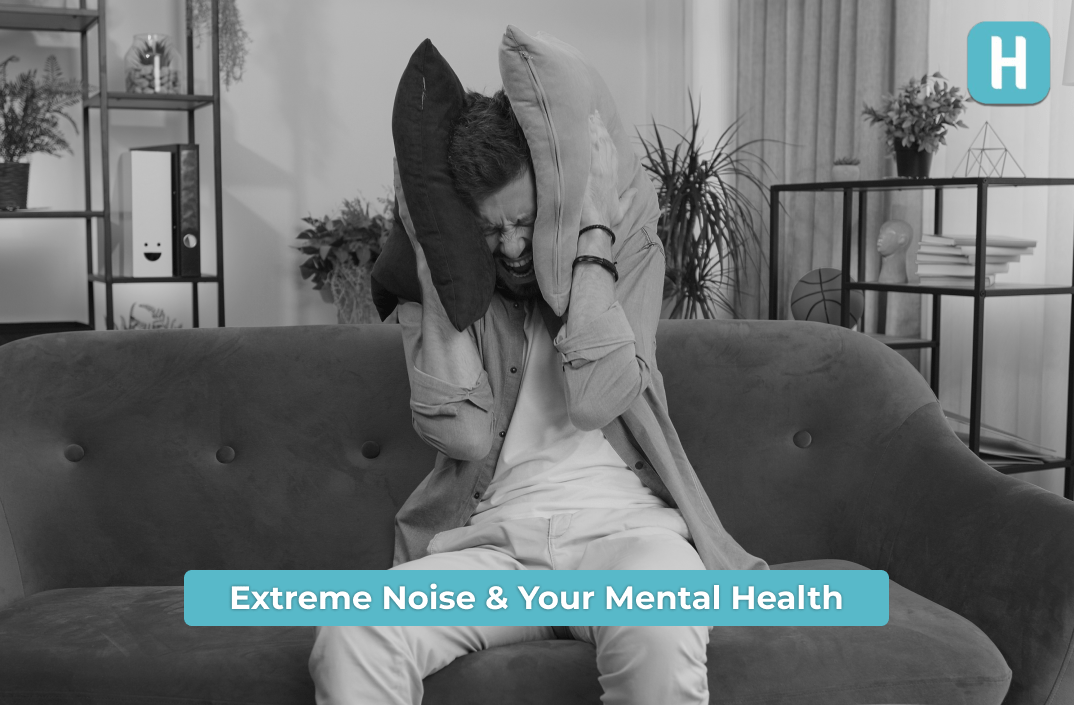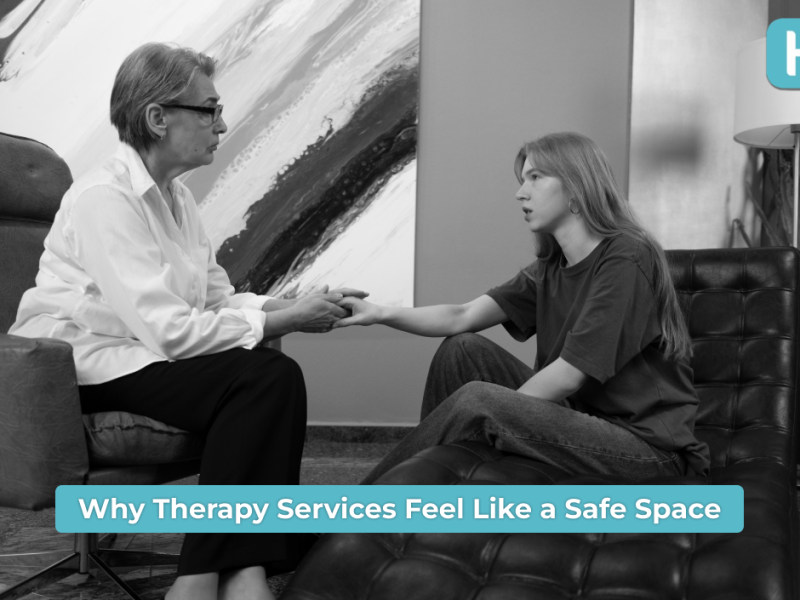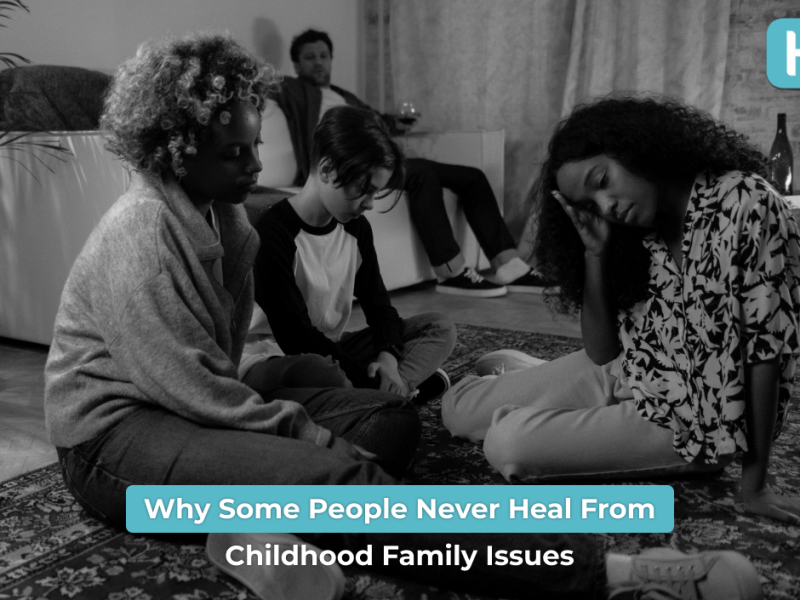Why We’re All Breaking Down, One Decibel at a Time
It’s everywhere, and it’s getting louder.
Traffic horns on the road, continuous noise of working machines, phones are vibrating, alarms are buzzing, stop shouting neighbors, and barking dogs. Earphones cranked to max.
We’ve normalized it. We tell ourselves it’s “just life.” But the reality is different. These things irritate us, but we tell ourselves everything is fine. Extreme noise is not just a nuisance; it’s messing with our minds.
If you’ve ever felt randomly irritated, anxious the moment you step outside, or drained even after a whole night’s sleep, there’s a good chance extreme noise is the hidden stressor you’ve been overlooking.
We’re Living in a Loud World, And It’s Not Healthy
Noise isn’t just a background problem. It’s become a mental health issue. Studies now show that extreme noise can cause chronic stress, anxiety, sleep disorders, and even depression.
But the most dangerous thing you often don’t realize is that it’s affecting your nervous system until it’s too late.
Your body reacts before your brain can process it: a racing heartbeat, sweaty palms, a short temper. You think you’re just “having a bad day,” but it’s the daily overload of noise that’s activating your nervous system.

What Extreme Noise Does to Your Brain?
When loud sounds constantly attack your ears, your brain goes into survival mode. It triggers your fight-or-flight response, the same ancient system that activates when you’re in danger.
But here’s the twist: you’re not actually in danger. You’re just in the noise traffic. Or in a crowded mall. Or trying to focus at work while machines hum, phones ring, and people chatter.
Over time, this constant alertness causes:
- Sleep disruption
- Irritability and panic attacks
- Fatigue and mental fog
- Increased cortisol (stress hormone)
- A weakened immune system
No wonder so many of us feel like we’re always on edge. We’re not lazy or weak, we’re excited. And extreme noise is a major offender.
From Breakdown to Breakthrough: Real People, Real Noise
Let’s talk about the reality of mental health crisis survival stories.
Maya is a graphic designer. She told her about herself, and she felt anxious and drained every evening. It wasn’t until she moved from her city apartment (right next to a construction site) to a quieter neighborhood that things changed.
Within two weeks, she stopped relying on sleeping pills. Her anxiety calmed. Her creativity returned.
There are countless mental breakdown recovery stories like Maya’s, where people don’t need primary therapy or medication. They just need peace and silence. But because extreme noise is so common, most people don’t recognize the connection.
Gen Z & the 24/7 Noise Trap
This generation never truly “unplugs.” For Gen Z, life is a loop of TikTok sounds, YouTube noise, Instagram reels, Spotify playlists, and constant notifications. Even their downtime is noisy.
And that’s contributing to a mental health crisis in Gen Z that’s reaching alarming levels.
According to mental health surveys, Gen Z reports higher levels of anxiety, depression, and burnout than any other generation, and extreme noise is a silent trigger no one is talking about.
Many young people live in a 24/7 mental health crisis, without realizing their environment is feeding it. Silence feels “boring” to them, but it’s the medicine their brains desperately need.
You’re Not “Too Sensitive.” You’re Just Not Numb Yet.
If loud places make you panic
If background noise makes it hard to focus
If you feel overwhelmed in crowds
You’re not broken. You’re just still connected to your body’s signals.
Extreme noise affects everyone, but only some people listen to the warning signs. Others push through , until their mental health collapses.
Don’t wait for that moment. Start listening now.
What Can You Do About Extreme Noise?
You may not be able to move to a cabin in the woods (as tempting as it sounds), but you can reduce the impact of noise on your mental health.
Here are a few real-world tips:
1. Noise Detox Hours
Schedule 30–60 minutes a day with no noise ,no phone, no music, no background videos. Let your brain breathe.
2. Invest in Noise-Canceling Tools
A good pair of noise-canceling headphones can save your sanity,especially if you work in a loud environment.
3. Turn Off Background Sounds
You don’t need the TV running in the background or the fan on high all day. Start noticing what’s just “there” out of habit.
4. Protect Your Sleep
Use earplugs, white noise machines, or soundproof curtains to make your sleep space quiet. Your brain heals during sleep.
5. Get Outdoors, Wisely
Natural sounds like birds or waves are healing. They don’t count as extreme noise. In fact, they calm your nervous system.

What to say to someone in crisis?
Sometimes, the people we love don’t even realize noise is triggering their breakdown. If you see someone slipping into burnout, here’s what to say to someone in crisis:
- “Have you had any quiet time lately?”
- “Do you want to sit in silence together for a bit?”
- “I know things feel overwhelming right now, maybe let’s step away from the noise for a while.”
Gentle, non-judgmental words can make all the difference.
Extreme Noise in Everyday Places
You don’t have to live near an airport or work on a construction site to suffer from extreme noise. It sneaks into our lives in places like:
- Cafés with loud music
- Office spaces with nonstop chatter
- Hospitals with constant alarms
- Schools with overcrowded hallways
- Public transport with screeching brakes
It’s so normalized that people often laugh off the effects. But if a room makes your shoulders tense and your jaw clench, it’s not “just noise.” It’s an assault on your mental well-being.
Silence We All Deserve
Silence isn’t a luxury. It’s a basic human need. Yet many of us haven’t experienced true silence in years.
The real tragedy is that extreme noise is robbing us of presence. It keeps our minds distracted, our bodies tense, and our relationships shallow.
When we reclaim silence, we reclaim clarity. Stillness. Joy. Connection.
How Helply Can Support You Through the Noise?
At Helply, we understand how subtle and devastating the effects of extreme noise can be. Our therapists are trained to help you reconnect with your body, set boundaries, and process the emotional toll of your environment.
Whether you’re in a 24/7 mental health crisis or simply seeking quiet in a loud world, we’re here. And we listen without adding to the noise.
Because peace shouldn’t be a privilege, it should be part of your daily life.
FAQs
Q1: Can extreme noise cause anxiety and depression?
Yes. Constant exposure to extreme noise can overstimulate your nervous system, leading to anxiety, depression, and burnout.
Q2: What are the signs that noise is affecting my mental health?
Irritability, insomnia, tension headaches, difficulty focusing, and fatigue are common signs.
Q3: How does extreme noise affect Gen Z specifically?
With constant exposure to digital sounds, mental health crises in Gen Z are rising. Their brains rarely get rest from stimulation.
Q4: Are there real recovery stories related to noise exposure?
Absolutely. Many mental breakdown recovery stories show significant improvement just by reducing noise exposure and creating quieter environments.
Q5: How can I help someone going through a noise-induced breakdown?
Listen with empathy. Ask calming questions, such as “What do I say to someone in crisis?” Offer a quiet space and avoid dismissing their experience.


